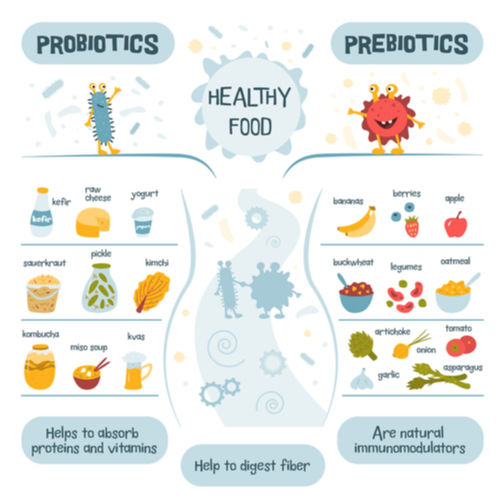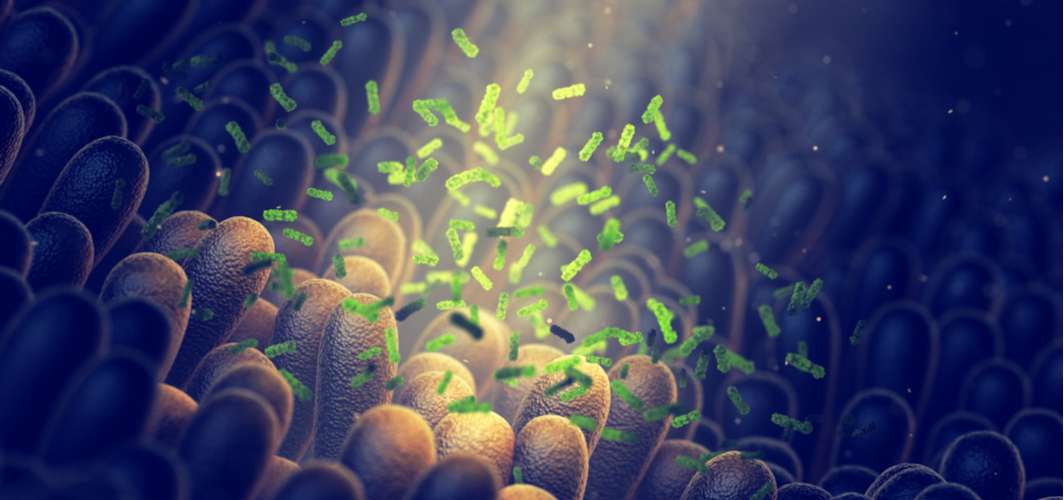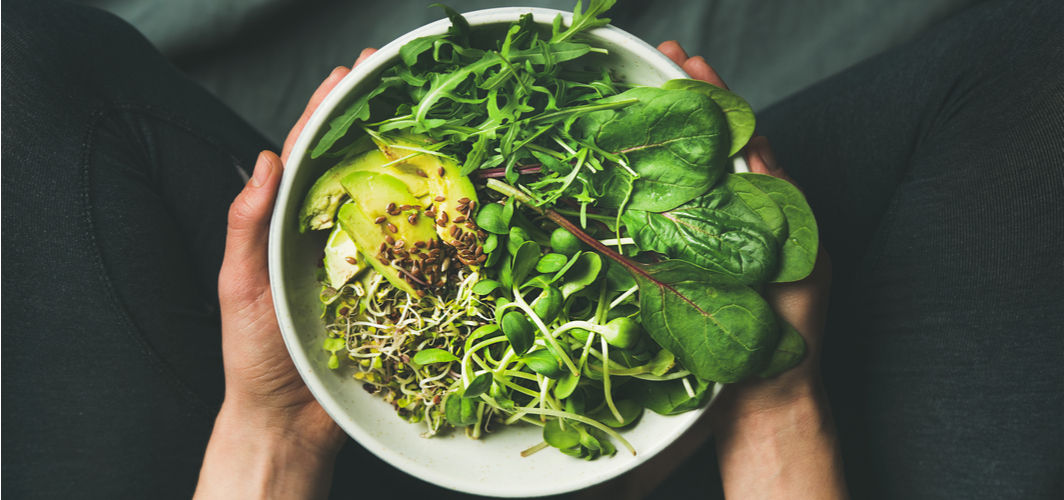Digestive Health
Probiotics Vs Prebiotics: Which Is The Better Food For Your Gut?
3 min read
By Apollo 24|7, Published on - 10 May 2022, Updated on - 04 June 2024
Share this article
0
51 likes

Did you know your gut is home to hundreds of bacteria? Yes, bacteria! The good and bad bacteria present in the human gut help in the digestion of food and prevent several digestive diseases. You require ‘probiotics’ and ‘prebiotics’ to maintain the optimal growth of these bacteria. While we may have heard of these terms a number of times, not many of us know what kind of role they play in maintaining a healthy gut. The article explains the difference between probiotics and prebiotics and answers why you need both of them.
Probiotics vs Prebiotics
Probiotics are live microorganisms, mostly bacteria, that help support the growth of good bacteria in the gut. They are mostly found in fermented foods and dietary supplements. Lactobacillus and Bifidobacterium are the two major types of bacteria found in probiotics. All these microorganisms help in maintaining the digestive and overall health.
On the other hand, prebiotic is a type of plant fibre that cannot be digested by humans. However, when consumed by humans, they pass through the gut where they are used as food by the probiotics. As a result, these plant fibres support the growth of healthy bacteria in the gut.
Common Probiotic and Prebiotic Foods
There are certain probiotic foods that contain live and active cultures of beneficial bacteria such as:
- Buttermilk
- Cheese
- Yoghurt
- Kefir
- Sauerkraut
- Kimchi
- Kombucha

Some of the foods rich in prebiotic fibre include:
- Legumes such as beans and peas
- Bananas
- Oats
- Berries
- Onions
- Garlic
- Asparagus
What are the health benefits of probiotics?
Simply put, probiotics aid in the growth of good bacteria in the gut, thereby improving overall digestion. Some of the proven health benefits of probiotics are:
1. Digestive Health
A study showed that probiotics can help reduce the risk of antibiotic-related diarrhoea. It has also proven to reduce the risk of necrotizing enterocolitis, a life-threatening inflammation of the digestive system, commonly seen in premature babies.
2. Gastrointestinal Health
The good bacteria (present in the gut) produce short-chain fatty acids, which are the primary source of nutrition for the cells that line the walls of the large intestine. The intake of probiotics may also help ease the symptoms of irritable bowel syndrome (IBS).
3. Mental Health
Emerging research suggests that probiotics may improve mental health. A review study observed that intake of probiotics may help ease the symptoms of depression.
4. Other Health Benefits
Anecdotal evidence suggests that probiotics may be beneficial for people suffering from urinary problems, oral problems, and skin conditions such as eczema.
Health Benefits of Prebiotics
Limited research shows that prebiotics can help in:
- Promoting the growth of healthy gut bacteria
- Improving digestive health
- Enhancing metabolism
- Increasing the absorption of calcium
Both probiotics and prebiotics play an essential role in maintaining a healthy gut. While probiotics add to the population of good bacteria in the gut and support their growth, prebiotics act as food for probiotics and other healthy bacteria. Both probiotics and prebiotics can be sourced naturally from foods, however, people can also use supplements after consulting the doctor. It is recommended to consult a dietician before making any significant change to the diet.
Digestive Health
Leave Comment
Recommended for you

Digestive Health
5 Most Common Digestive Disorders Explained
Chronic constipation, diarrhea, acid reflux or GERD, lactose intolerance, and irritable bowel syndrome are some of the disorders that can adversely affect the digestive system.

Digestive Health
How the Gut Microbiome Works to Keep You Healthy
Maintaining the right balance between the ‘good’ and ‘bad’ microorganisms is essential for immunity, and overall physical and mental health.

Digestive Health
What Is a FODMAP Diet and How Does It Help Manage IBS?
A diet, particularly low in fermentable carbohydrates, generally referred to as FODMAPs, is recommended for people dealing with irritable bowel syndrome (IBS).
Subscribe
Sign up for our free Health Library Daily Newsletter
Get doctor-approved health tips, news, and more.
Visual Stories

Hidden Health Benefits in a Bowl of Salad
Tap to continue exploring
Recommended for you

Digestive Health
5 Most Common Digestive Disorders Explained
Chronic constipation, diarrhea, acid reflux or GERD, lactose intolerance, and irritable bowel syndrome are some of the disorders that can adversely affect the digestive system.

Digestive Health
How the Gut Microbiome Works to Keep You Healthy
Maintaining the right balance between the ‘good’ and ‘bad’ microorganisms is essential for immunity, and overall physical and mental health.

Digestive Health
What Is a FODMAP Diet and How Does It Help Manage IBS?
A diet, particularly low in fermentable carbohydrates, generally referred to as FODMAPs, is recommended for people dealing with irritable bowel syndrome (IBS).